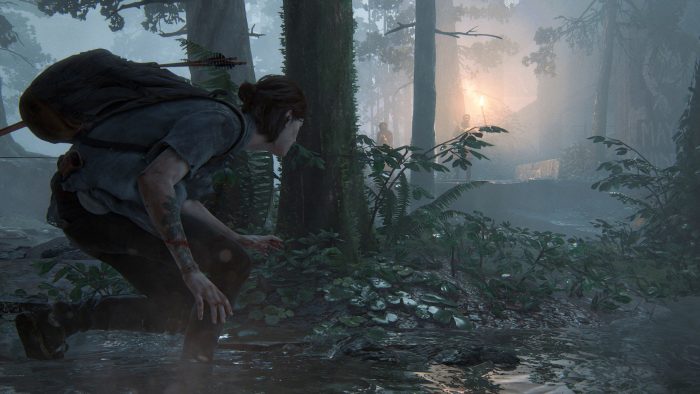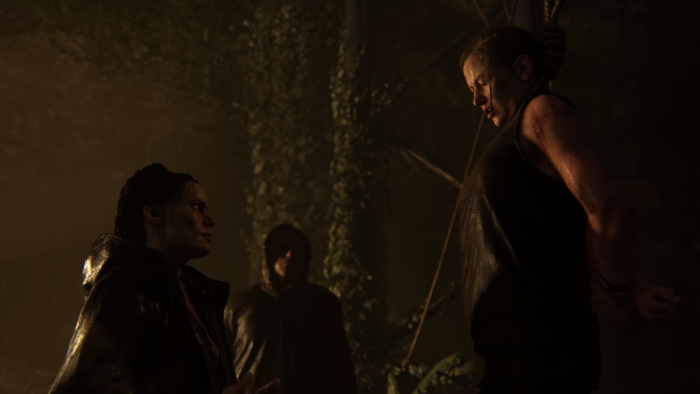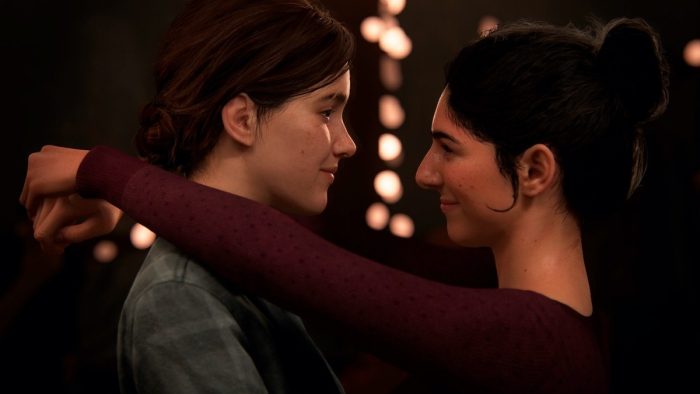'The Last Of Us: Part II' Is A Miserable Masterpiece And Possibly The Game Of The Generation
Let's start with something you don't see in a lot of video game reviews: an accessibility disclaimer. There is unprecedented depth to the number of accessibility options within The Last of Us: Part II. This is intended for those visually/sonically impaired, those with physical disabilities (something that I personally am glad is being addressed), or people that simply don't play video games enough to properly work a controller but that still want to experience a riveting narrative. With that said, I strongly urge someone to read this review even if they have never played a video game before, as maybe this would be a good starting point and that, from this point forward, games will further keep inclusivity in mind and eradicate gatekeeping.
With that out of the way, it must be set upfront that the bar is already set astronomically high for Game of the Decade, as Naughty Dog's The Last of Us: Part II (directed by the sole writer of the first game, Neil Druckmann, scribing the decidedly more female-focused sequel alongside Westworld's Halley Gross) delivers on its mountainous ambition.
Expanding on the morally ambiguous and selfish closing moments of 2013's The Last of Us, Part II also catches new players up to speed, essentially meaning that while a history with the first game is recommended, it's not at all necessary. Five years later, Joel's actions catch up to him and immediately become the catalyst for a sweeping tale of cyclical revenge with no end in sight. With an additional character to control (coming with a unique fighting style, different customizable weapons, and more upgrades), The Last of Us: Part II is determined to make the player empathize with the driving force on both sides of vengeance, even if it means taking beloved protagonists and illuminating their own flaws to the point of disgust.
There is no handwaving or character assassination, though, as these warts on fan-favorite characters have always been there. Some players just chose to ignore them, either because their own cynical apocalyptic worldview made the climax of the first game justified or the fact that it's easier for an entertainment medium largely dominated by heterosexual males to see the good inside and heroize overly masculine behavior that's borderline psychopathic. Naturally, Ellie (once again phenomenally performed by Ashley Johnson) has inhabited some of these unsavory characteristics, using the rage learned from her protector Joel (a returning Troy Baker, taking on new acting challenges that reinforce why he's one of the very best in the gaming industry) to fuel her unflattering warpath for justice. Here, Ellie wrestles with her own identity as she honors those around her that shaped her into an efficient killer. However, if she doesn't break free from having her identity entangled within Joel's, it may consume her to a point beyond redemption. That's not to say that Joel is evil (there are plenty of moments demonstrating how caring of a guardian he is), just that his final decisions were misguided.

As foul-mouthed and jokey as ever (although humor is something Ellie quickly drops as her character goes through a remarkably painful but riveting transition), Ellie is also developing a romantic affection for Dina (Shannon Woodward). However, she has conflicted emotions about this due to the Wyoming settlement she calls home having a handful of bigots and her own uncertainty of such a relationship having a shot at working. There are two reasons for that uncertainty: her immunity to the Clicker plague and her penchant for violence. There is an elaborate tattoo covering up her bite mark at the hands of the infected from the first game, illustrating the relatable concept that whether it's sexuality or immunity, she has to harbor secrets. Later in the game, a strongly drawn supporting character also deals with transgender identity, adding more diversity to a blockbuster gaming experience that puts Hollywood cinema to shame in terms of both representation and quality. The tremendously talented Laura Bailey voices Abby, another inclusion to the cast of protagonists – she is simultaneously unlikeable and just as easy to get behind as the familiar faces, especially as we learn more about her.
The heart of the game takes place in downtown Seattle, and explorable areas include a number of locations and buildings: a wide-open uprooted earthly landscape with numerous side areas to explore, ranging from music shops to a bank heist gone wrong on outbreak day to a synagogue exploring the Jewish background of Dina with her current plight for survival. Instead of a surrogate father-daughter dynamic, the bonding here is centered on Ellie and Dina both further falling for one another, with the latter supporting Ellie across numerous questionable decisions. Throughout the sprawling multilayered revenge arc, Ellie will scribble tortured journal entries expressing more of her harrowed mental state, whereas hidden conversations can once again be triggered with companion characters (there are some not discussed in this review but that are definitely worth getting to know) by combing every inch of every area. The narrative is steeped in misery and suffering, with its rivals resembling shattered mirrors of one another (also with stark contrasts in terms of gameplay agility and physicality). And just when one thinks it's about to come to an ending that would already be difficult to stomach, the story goes in yet another bold direction to recontextualize everything.
 The Last of Us: Part II handles murder in an unpleasant way that actively makes combat not fun to thematically participate in even if the actual combat gameplay is excellent. There are multiple factions to battle against, with even the worst of the worst (a sort of crazed religious cult) initially starting off with good intentions. All of these groups have lost their way in some form or another, but the game supplies us with absurd levels of detail, such as giving individual enemies actual names and humanized dialogue. The result: it's never a good feeling shooting someone in the face or stealth killing them from behind. Stealth kills aren't just grisly to behold – they are accompanied by deliberate camera pans showing the eyes of the victim rolling back as they make uncomfortably real gagging noises while blood spurts out from the fatal wound. At one point, my position was compromised, forcing me to kill a dog with a pipe and then quickly switch over to a firearm and gun down the owner...who then proceeded to utter the name of his pet with his dying breath. It's not just a sign of skill when sneaking through an area undetected. It's a relief from the horrors of this cycle of violence.
The Last of Us: Part II handles murder in an unpleasant way that actively makes combat not fun to thematically participate in even if the actual combat gameplay is excellent. There are multiple factions to battle against, with even the worst of the worst (a sort of crazed religious cult) initially starting off with good intentions. All of these groups have lost their way in some form or another, but the game supplies us with absurd levels of detail, such as giving individual enemies actual names and humanized dialogue. The result: it's never a good feeling shooting someone in the face or stealth killing them from behind. Stealth kills aren't just grisly to behold – they are accompanied by deliberate camera pans showing the eyes of the victim rolling back as they make uncomfortably real gagging noises while blood spurts out from the fatal wound. At one point, my position was compromised, forcing me to kill a dog with a pipe and then quickly switch over to a firearm and gun down the owner...who then proceeded to utter the name of his pet with his dying breath. It's not just a sign of skill when sneaking through an area undetected. It's a relief from the horrors of this cycle of violence.
There's less guilt from killing the infected, but it's not exactly happy times either. There is a new type of monstrosity that is heavily armored and emits corrosive gases, guaranteed to have players going through their ammo reserves. There are more actual boss battles, with the final two brilliantly tying the gameplay mechanics into the themes and storytelling. Soft music from Gustavo Santaolalla (who also did unforgettable work on the first game) punctuates moments of graphic violence and loss with profound sadness; it's hard to imagine these games being as effective as they are without his presence.

While picking up one of the game's countless memos (the sheer number of collectibles are daunting, but worth seeking out for more context to the bigger picture and compelling offscreen drama), Ellie remarks out loud that the state of these factions boils down to "a**holes killing other a**holes". The same could be said about the central characters here. The Last of Us: Part II prepares and sets the stage to a devastating climax for roughly 25 hours, switching between playable characters for both past and present sections (occasionally with mild pacing problems), but even when the end does arrive, there is nothing in the world to actually be prepared for what's about to be played. There are two conflicting emotions; "I can't fucking play this anymore" and "I have to see this incredible experience through to the end." The line between protagonist and antagonist is blurred as their individual moral compasses are sickeningly twisted into knots.
Make no mistake about it: it is miserable to play The Last of Us: Part II, as it is seemingly designed to break the player mentally just like every one of its major characters. However, within that misery resides one of the deepest, most arresting stories ever told in a video game.
/Film Rating: 9.5 out of 10
